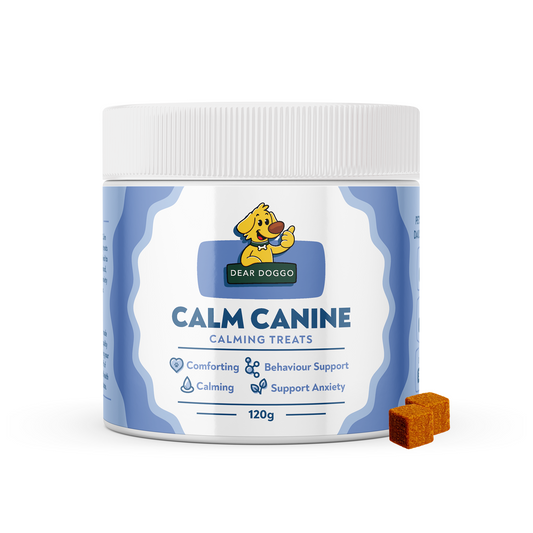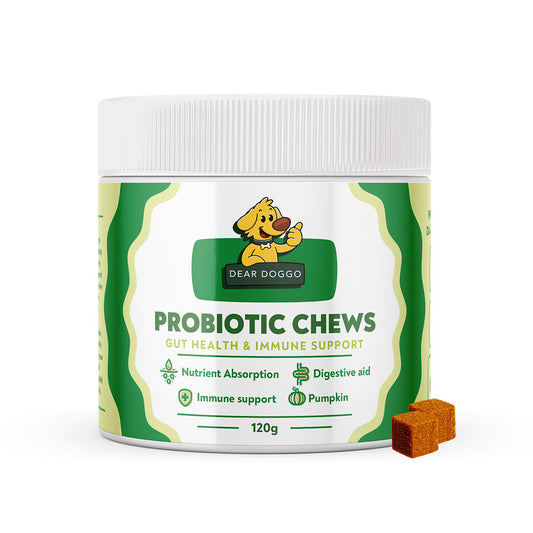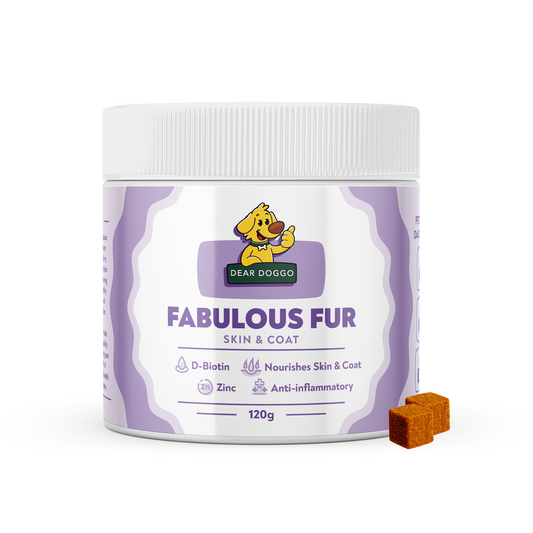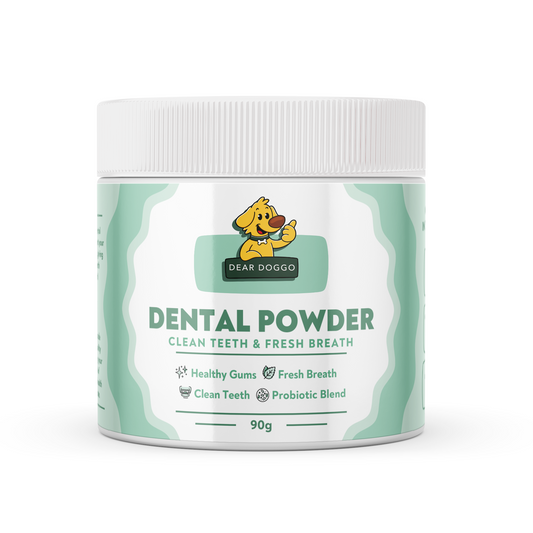As dog owners, we often marvel at our furry friends' boundless energy and agility. Whether they're chasing balls at the park or zooming around the house, their joie de vivre is infectious. But have you ever stopped to consider the intricate mechanics that enable them to move with such grace and enthusiasm? Behind every joyful romp lies a complex system of joints, muscles, and ligaments working tirelessly to support their every move. In this blog post, we delve into the importance of joint health for our beloved canine companions and explore how we can help keep their joints in tip-top shape.
Understanding Canine Joints:
Just like humans, dogs rely on joints to facilitate movement and mobility. These joints, which include the hips, elbows, knees, and shoulders, are critical for activities such as running, jumping, and playing. However, unlike our own joints, which are protected by layers of muscle and fat, canine joints are more vulnerable to wear and tear, making them susceptible to injury and degeneration over time.
The Importance of Joint Health:
Maintaining optimal joint health is crucial for dogs of all ages, from playful puppies to wise old seniors. Healthy joints not only ensures smooth and pain-free movement but also play a key role in preventing debilitating conditions such as arthritis and hip dysplasia. By supporting our dogs' joint health, we can enhance their quality of life and help them enjoy a lifetime of activity and vitality.
Tips for Supporting Joint Health:
-
Nutrition: A balanced diet rich in essential nutrients, vitamins, and minerals is vital for maintaining healthy joints. Look for dog food formulated with glucosamine, chondroitin, and omega-3 fatty acids, which are known to support joint function and reduce inflammation.
-
Regular Exercise: Keeping your dog active is essential for promoting strong muscles and supporting joint health. However, it's important to strike a balance and avoid overexertion, especially for breeds prone to joint issues. Low-impact activities such as swimming and gentle walks are ideal for keeping joints limber without putting undue stress on them.
-
Weight Management: Excess weight can place added strain on your dog's joints, increasing the risk of injury and exacerbating existing conditions. Help your dog maintain a healthy weight through portion control, regular exercise, and a balanced diet tailored to their individual needs.
-
Supplements: In addition to a nutritious diet, consider incorporating joint supplements into your dog's daily routine. Dear Doggo's Joint Supplement is a great way to ensure our furry friends stay active, happy, and thriving, bidding farewell to joint discomfort. It is easy to administer and deliciously flavored. Formulated with glucosamine, chondroitin, and MSM. This supplement supports cartilage health, reduces inflammation, and promotes joint lubrication for dogs of all ages.
-
Regular Veterinary Check-ups: Schedule regular check-ups with your veterinarian to monitor your dog's joint health and address any concerns or issues promptly. Early detection and intervention are key to preventing joint problems from escalating into more serious conditions.
Just like us, our canine companions deserve to live happy, active lives free from joint pain and discomfort. By prioritizing their joint health through proper nutrition, regular exercise, and proactive veterinary care, we can help them stay fit, agile, and full of vitality for years to come. So let's raise a paw to our furry friends' well-being and commit to keeping their joints in tiptop shape
 45-Day Money Back Guarantee
45-Day Money Back Guarantee






